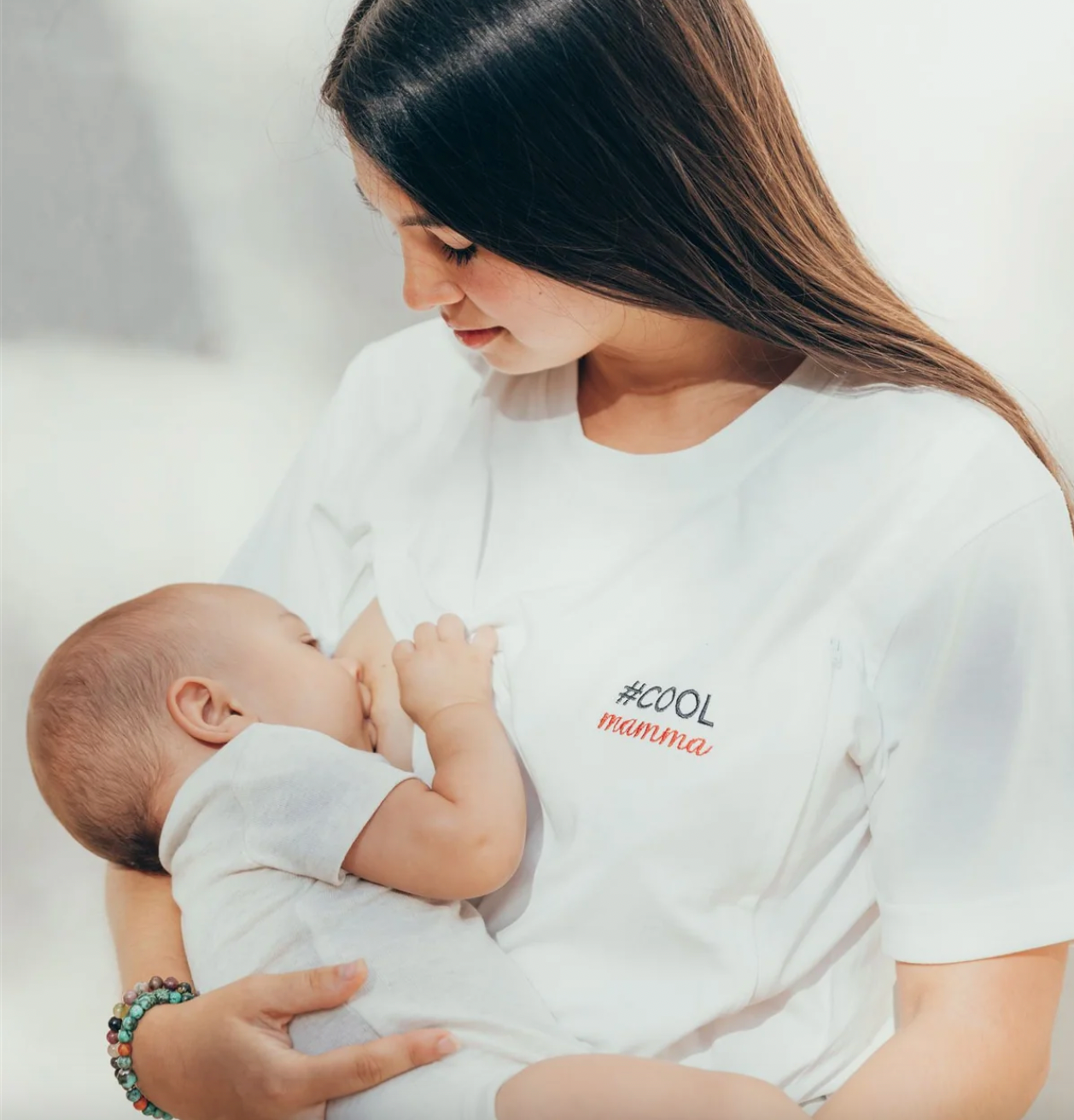
Breastfeeding and caffeine ☕👶
Can you drink coffee without feeling guilty?
When you become a mother, every daily gesture is scrutinized, including the simple pleasure of drinking a cup of coffee. If you're breastfeeding, you may be wondering whether your morning dose of caffeine is safe for your baby. Good news: you don't necessarily have to give up your favorite beverage! But how much is enough? What are the effects of caffeine on breast milk? Let's decipher the subject together, so you can enjoy your coffee with complete peace of mind.

1. Does caffeine pass into breast milk?
Yes, caffeine does pass into breast milk, but in very small quantities. After ingestion, it peaks in the mother's blood at around 30 to 120 minutes later, and a tiny fraction (about 1 % of the ingested dose) is found in breast milk. Unlike adults, newborns eliminate caffeine more slowly because their livers are still immature.
👉 Good to know: As babies grow, their bodies metabolize caffeine more effectively, reducing its potential impact.
2. How much coffee can I drink while breast-feeding?
Recommendations vary slightly, but most experts agree on a limit of around 300 mg of caffeine a day, or 2 to 3 cups of filtered coffee.
To give you a better idea, here's the caffeine content of some common beverages:
-
☕ Filter coffee (250 ml): approx. 95 mg
-
☕ Espresso (30 ml): approx. 63 mg
-
🍵 Black tea (250 ml): approx. 47 mg
-
🥤 Cola soda (330 ml): approx. 30 to 40 mg
-
🍫 Dark chocolate (100 g): approx. 40 mg
💡 Tip: If you love coffee but are breastfeeding a newborn or sensitive baby, consider alternating between classic and decaffeinated coffee.
3. What effects can caffeine have on babies?
Most babies tolerate moderate caffeine consumption very well. However, some may be more sensitive, especially in the first few weeks of life. Here are some signs to look out for in your baby:
✔️ Irritability or unusual restlessness
✔️ Difficulty falling asleep or disturbed sleep
✔️ More frequent regurgitation
If you notice these symptoms after drinking coffee, try reducing your consumption for a few days and see if your baby's condition improves.
4. How to enjoy your coffee without stress?
If you want to continue enjoying your coffee guilt-free, here are a few tips:
✅ Drink your coffee after feeding This reduces the concentration of caffeine in the milk as the baby feeds.
✅ Try gentler alternatives Green tea, rooibos and cereal drinks are excellent substitutes.
✅ Go for decaffeinated It retains the aroma of coffee without the stimulating effects.

Conclusion: Should we say goodbye to coffee during breastfeeding?
Good news: there's no reason to completely eliminate caffeine if you're breast-feeding! As long as you stick to moderate consumption (2 to 3 cups a day), your baby shouldn't suffer. As always, the most important thing is to listen to your body and observe your baby's reactions. So relax and enjoy your coffee... guilt-free! ☕💛



Leave a comment
This site is protected by hCaptcha, and hCaptcha's Privacy Policy and Terms of Service apply.